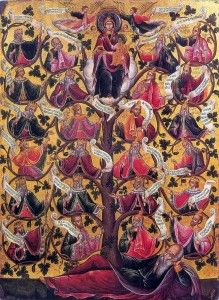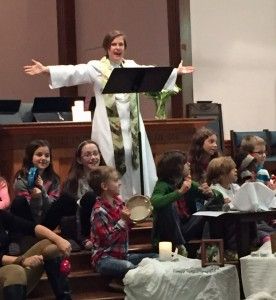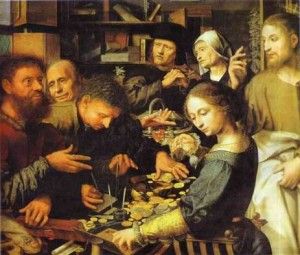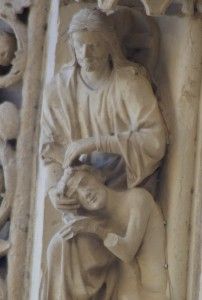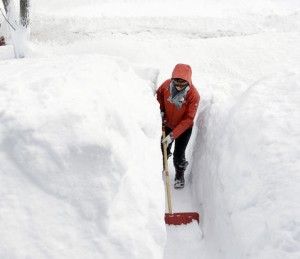
Luke Chapters 1&3
Last winter, it snowed. A lot. Do you remember? Snow had fallen, snow on snow, as it says in the Christmas carol. So we shoveled. And then we shoveled more snow on top of our shoveling. And then we shoveled still another batch of snow on top of the shoveling on top of the shoveling. By the end of the winter, our backs were sore, and our patience wore thin. There were mountains of snow everywhere, and no place to put the new snow that kept falling.
It’s hard to get through deep snow on foot. But we didn’t have any other options if we wanted to go outside at all. My family definitely wanted to get outside, so when we ventured out we walked in a line. One person went in front, breaking through the snow with their boots. That made it easier for everyone who walked behind them, because we could see where to put our feet. The mountains of snow were packed down for us in convenient foot shapes.
During Advent, we remember John the Baptist, that other baby in the beginning of Luke’s Gospel. As his father Zechariah predicts, John becomes a prophet – someone who tells the truth about God. The truth that John tells prepares everyone for Jesus. John calls the people to repent – to change, to turn back from their mistakes. And he offers the people baptism: a washing with water that makes way for a new relationship with God.
Imagine that all of the people who needed Jesus were stuck in a snowstorm. John is the one who walks at the front of the line, stomping down all the deep snow so that Jesus has a way to the people, and they have a way to Jesus. John prepares a path through anything and everything that has piled up, blocking the way between the people’s hearts and Jesus, Emmanuel, God-with-us, the Prince of Peace.
The people back then needed John, and we need him now. We need John, most of us. John wasn’t the best looking guy. He wore strange clothes and ate strange things and when that sweet little baby boy grew up, he had a mouth on him. But even though John was a PR disaster, God gave John an important job to do: smoothing a path between us and Jesus. John did it two thousand years ago, and he’s still doing it today.
What’s in the way for you, this season? What is between you and Jesus? Maybe it’s the insanity of this season: the obligations and preparations that we and our friends and families choose to burden ourselves with. Maybe it’s personal loneliness or loss or anger. Maybe it’s despair over the tragedies going on in our world.
For many of us, snow has fallen, snow on snow, snow on snow on snow. We dig ourselves out, and then it just keeps on coming. We need a helper. We need a vanguard. We need someone, smelly and strident and strong enough to make a path, to make a way, to tamp down some footprints in the snow for us to follow.
John comes this season, offering us new life through the gift of baptism, as we baptize Juliana this morning; and reminding us of those glorious ancient words of promise from Isaiah: Every valley shall be filled, and every mountain and hill shall be made low; the rough ways made smooth; and all flesh shall see the salvation of God.
I invite you to think of who is making a way for you this season. It may be a family member, or a friend, or a fellow church member. It may be a poet or musician from long ago, or another saint in the heavenly host. Write them a note; give them a call; take them aside and say “thank you;” or simply say “thank you” to God for them.
God, thank you for making rough ways smooth, for making valleys high and mountains low, for making a way out of no way. Thank you for all the way-makers you have sent to help us, and for helping us to make a way for others. Amen.
![]() Isaiah 45: 1-3
Isaiah 45: 1-3

